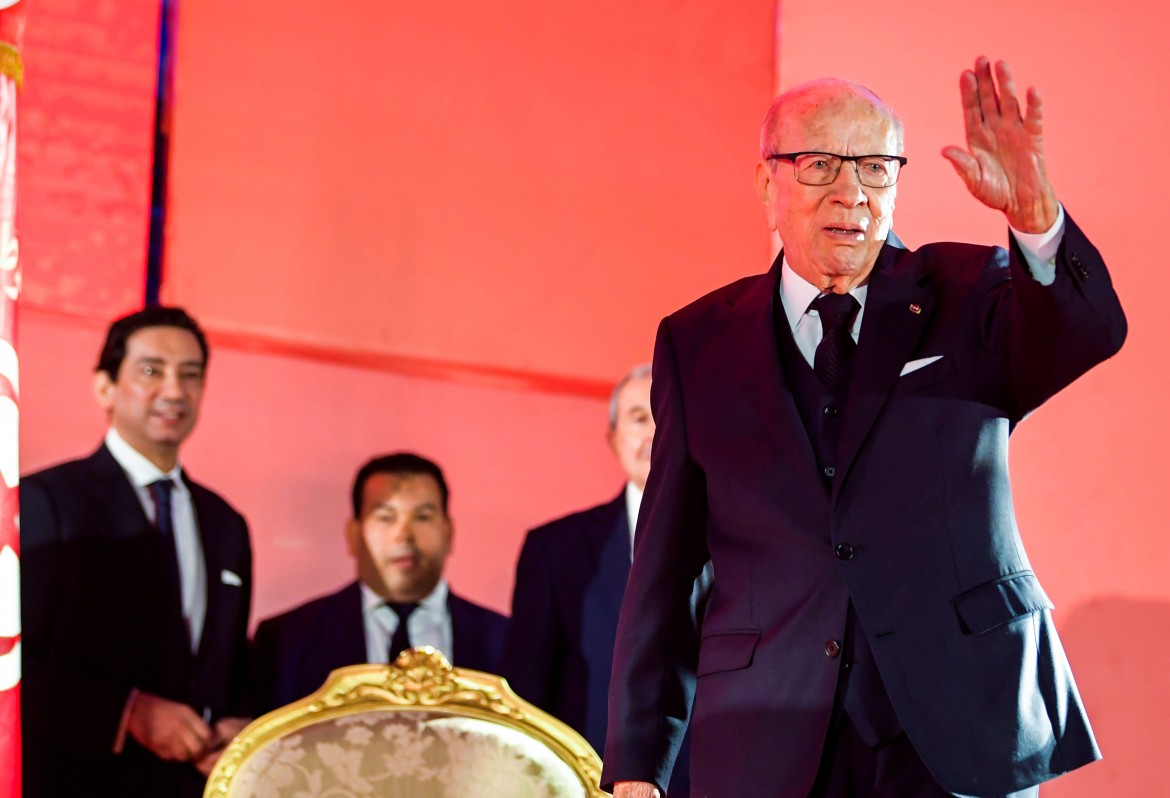Commentary
Essebsi is dead, and Tunisia is more fragile
Béji Caid Essebsi supported a law allowing Tunisian women to marry non-Muslims and a law against gender violence. His death leaves behind a void in a country faced with two impending major elections.

The 92-year-old President of Tunisia, Béji Caid Essebsi, was nowhere to be seen at the festivities on July 25, celebrating Republic Day in the country. Just one day before, after Ghazi Chaouachi, leader of the Democratic Current, demanded the president’s resignation, people had feared that the situation might end up similar to that of Bourguiba, ousted from power in what has been called a “medical coup.”
Of course, the situation is very different, but the vision of the ailing president—who was hospitalized for the first time from June 27 to July 1 for a serious illness, and then again on Wednesday—could not but recall the figure of Bourguiba in the ‘80s. Essebsi was a friend of Bourguiba and a minister in his cabinet. His policies, inspired by the former president, were secular and progressive—particularly regarding women.
Bourguiba had passed the 1956 Family Code, guaranteeing more rights for Tunisian women than in any other Arab country. Over the past two years, Essebsi supported a law allowing Tunisian women to marry non-Muslims—since in Muslim countries, men are allowed to marry women who belong to one of the “religions of the book,” i.e. Christianity and Judaism, but women are not—and a law against gender violence.
In addition, under Essebsi, another taboo common to all Muslim countries was finally overcome: the one regarding equal inheritance. It was not easy to propose such a measure, which goes against the rule set out in the Koran which says that women’s inheritance should be half that of men.
For Tunisians, Essebsi has represented the alternative to the Islamist Ennahda party, which won the first elections after the spring of 2011, even though he was forced to compromise with them eventually. Today, Essebsi leaves behind a party, Nidaa Tounes, torn by divisions and internal splits, for which his son Hafedh, whom he designated as his successor at the head of the party, is partly to blame. The head of the government chosen by Essebsi himself, Chahed Youssef, has created a new party together with many defectors from Nidaa Tounes and has allied with the Islamists.
In any case, the president has undoubtedly played an important role after the Revolution of 2011, first as prime minister and then as president of the country since 2014. His death leaves behind a void in a country faced with two impending major elections. Last month, Essebsi signed a presidential decree convening the legislative elections for Oct. 6 and the presidential elections for Nov. 17, in addition to a decree extending the state of emergency in the country.
However, Béji Caid Essebsi (whom the Tunisians called BCE) had decided not to sign the controversial amendments to the electoral law that Parliament had passed on June 18, which was the reason why Chaouachi called for his resignation. He was supposed to explain the reasons for his choice in the following days. 51 deputies had filed an appeal against the measures before the Provisional Instance to Review the Constitutionality of Draft Laws, the Tunisian provisional replacement for the Supreme Court.
The court rejected their appeal, so the future of the electoral law was entirely in the hands of the president, who obviously reached his decision taking into account the many conflicting positions. In addition to lowering the electoral threshold from 5 to 3 percent, the amendments eliminated the article which excludes members of the former RCD (Ben Ali’s party) from the elections, and introduced a provision to exclude the heads of organizations and media outlets from running, provoking strong opposition from the General Union of Tunisian Workers (UGTT), as well as from Nabil Karoui, the owner of Nesma TV, who is the favorite in the polls.
The secretary of the UGTT, Noureddine Taboubi, was the first to put out a statement mourning the loss of a “great statesman.”
Who will fill the position of interim president? According to Article 84 of the Constitution, the Constitutional Court—which has never been convened, and has been provisionally replaced by the Provisional Instance to Review the Constitutionality of Draft Laws—must name the Speaker of Parliament, Mohamed Ennaceur, to the position, instructing him to organize elections within 45-90 days, i.e. between mid-September and late October, which would mean that the electoral calendar has to be upended. Meanwhile, Ennaceur, who has taken up the role of acting president, has already put out a statement calling on Tunisians to “close ranks” and “show solidarity” during this time.
Originally published at https://ilmanifesto.it/tunisia-piu-fragile-e-morto-essebsi-il-presidente-laico/ on 2019-07-26
